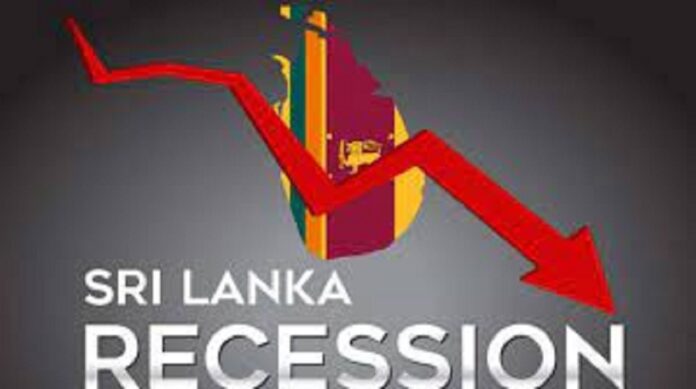Sri Lanka’s economy has fallen deeper into recession, as tight monetary policy and Asia’s fastest inflation further aggravated the nation’s economic crisis, latest official statistics indicated.
Gross domestic product probably contracted about 10 percent between July and September compared to the same period last year, according to an analytical report on recent available official data.
The reserve money increased compared to the previous week mainly due to increase in the currency in circulation.
Reserve Money increased to Rs 1,341.7 billion in October 2022 from Rs 1,378.6 billion of the same month last year, Central Bank data shows.
The total outstanding market liquidity was a deficit of Rs. 370.842 bn by the end of this week, compared to a deficit of Rs. 397.503 bn by the end of last week.
During the year up to 16th December 2022, the Sri Lankan rupee depreciated against the US dollar by 44.8 percent.
Given the cross currency exchange rate movements, the Sri Lankan rupee depreciated against theEuro by 41.4 percent, the pound sterling by 39.0 per cent, and the Indian rupee by 38.5 percent and the Japanese yen by 34.3 per cent during this period.
Official Reserve Assets stood at US$1,804 billion as of end November reflecting some forex exchange inflows into the country.
Earnings from Tourism have dropped to $107.5 million last month $ 15.4 million posted in November last year.
Workers’ Remittances (Inflows) recorded an increase to $384.4 million in November this year compared to $ 271.4 million in the same month last year.
This data shows that the country’s economy has shrunk by about 10 percent between July and September of this year compared to last year. The economy shrank by 8.4 percent between April and June.
Senior finance ministry official points out that higher inflation and weak reliability have further dampened the situation.
Meanwhile the Government will introduce a new program to protect both tourism and the banking sectors, whilst highlighting the need to work collectively on the directions of President Ranil Wickremasinghe.
It will help to maintain the banking sector in the country without letting it collapse while developing the tourism sector.
Subsequent to the Easter Sunday terror attacks in April 2019, initially a financial moratorium servicing of borrowed capital and related financial cost was arranged for six months from July to December 2019.
Thereafter, due to the COVID pandemic, the financial moratorium was extended on three occasions till 30 June.
Thereafter, the leading industry associations urged for the extension of the Rs. 500 billion debt moratorium by additional six months till 31 December, noting it was critical for the 3 million-dependent industry and to tap prospects for more forex-boosting visitors in the upcoming winter season.
